Who Are Mortgage Loan Originators?
Mortgage loan originators, also known as mortgage loan officers or MLOs, play a critical role in the home loan process. They are individuals or institutions that initiate and guide borrowers through the mortgage application and approval process. Mortgage loan originators are your main point of contact and source of guidance throughout the journey to homeownership.
The Role of Mortgage Loan Originators
Mortgage loan originators wear many hats as they help borrowers navigate the complex world of mortgages. Here are some key responsibilities of mortgage loan originators:
- Loan guidance: MLOs work closely with borrowers to understand their financial situation, goals, and preferences. They help borrowers choose the right mortgage program that aligns with their needs and financial capabilities.
- Paperwork and underwriting: MLOs assist borrowers in completing the necessary paperwork and documentation required for the mortgage application process. They organize and submit the borrower’s application to the lender and guide them through the underwriting stage.
- Appraisal and verification: MLOs coordinate the appraisal process, ensuring that the property’s value aligns with the loan amount. They also verify the borrower’s employment, income, and financial information to support the loan application.
- Communication with real estate agents: MLOs collaborate with the borrower’s real estate agent to ensure all contract deadlines and contingencies are met. They act as a liaison between the borrower, the lender, and other parties involved in the transaction.
- Industry knowledge and updates: Mortgage loan originators stay up to date with the latest financial trends, mortgage products, and interest rates. They provide borrowers with insights and advice based on their expertise and knowledge of the market.
Having a knowledgeable and trustworthy mortgage loan originator by your side can make the home loan process smoother and less overwhelming. They simplify complex concepts, answer your questions, and guide you towards the best mortgage solution for your needs.

Mortgage Loan Originator vs. Mortgage Broker: What’s the Difference?
When it comes to obtaining a mortgage, you’ll come across two terms: mortgage loan originator and mortgage broker. While they both assist borrowers in securing a home loan, there are some key differences between the two.
Mortgage Loan Originator (MLO):
A mortgage loan originator works for a specific financial institution, such as a bank or credit union. They represent the institution’s mortgage products and guide borrowers through the loan process. MLOs have in-depth knowledge of their institution’s loan programs and can offer discounts on interest rates and closing costs specific to that institution.
Working with an MLO limits your options to the mortgage programs offered by the institution they represent. However, if the institution provides competitive rates and loan options that meet your needs, working with an MLO can be advantageous.
Mortgage Broker:
A mortgage broker, on the other hand, acts as an independent agent who works with multiple lenders. Brokers have access to a network of lenders and loan products. They review your finances, assess your needs, and submit your loan application to several lenders on your behalf. The broker facilitates the loan process and assists in finding the best mortgage terms and rates for your situation.
Mortgage brokers are not employed by financial institutions and do not approve or deny home loans themselves. Instead, they act as intermediaries between borrowers and lenders, helping borrowers find the most suitable loan options.
Deciding whether to work with an MLO or a mortgage broker depends on your preferences, the mortgage options available, and your comfort level with the arrangement. Both options have their advantages and can be beneficial in different situations.
Mortgage Origination Fees: What You Need to Know
When obtaining a mortgage, you may come across a mortgage origination fee. This fee is charged by some lenders to cover the costs associated with processing and originating the loan. It’s typically expressed as a percentage of the total loan amount.
Mortgage origination fees usually range from 0.5% to 1% of the loan amount. For example, if you’re borrowing $200,000, the origination fee might be $1,000. However, some lenders may waive the origination fee in exchange for a slightly higher interest rate.
When deciding between paying the origination fee or opting for a higher interest rate, consider the duration of your mortgage. If you plan to stay in the home for a long time, paying the origination fee may be more cost-effective. On the other hand, if you plan to sell or refinance in the near future, opting for a higher interest rate can be a viable option.
It’s essential to discuss mortgage origination fees with your mortgage loan originator or broker. They can explain the fee structure and help you assess the best course of action based on your specific financial situation and homeownership goals.
Licensing Requirements for Mortgage Loan Originators
Mortgage loan originators must meet specific licensing requirements to ensure they operate within legal and ethical boundaries. The licensing process varies by state and involves registering with the Nationwide Mortgage Licensing System (NMLS).
Lenders that issue home loans, such as banks, bank subsidiaries, and credit unions, are required to register with the NMLS. If an individual mortgage loan originator works for a registered lender, they do not need a separate license.
However, if an MLO works for a lender that is not registered with the NMLS or operates as an independent broker, they must obtain a license in the state where they originate loans. Licensing requirements typically include pre-licensing education, passing a national and state-specific exam, background checks, and ongoing continuing education.
The licensing requirements ensure that mortgage loan originators have the necessary knowledge, skills, and ethical standards to guide borrowers through the mortgage process. Before working with an MLO, verify their licensing status through the NMLS to ensure they meet the required qualifications.
Choosing the Best Mortgage Loan Originator for You
Selecting the right mortgage loan originator is crucial for a smooth and successful home loan experience. Here are some tips to help you choose the best MLO for your needs:
- Seek recommendations: Start by asking your real estate agent, friends, and family for recommendations. Their firsthand experiences can provide valuable insights into the professionalism, knowledge, and responsiveness of MLOs they’ve worked with.
- Research and compare: Explore the websites and social media profiles of MLOs you’re considering. Read client reviews and testimonials to gauge their reputation and customer satisfaction. Use the NMLS to verify their license status and ensure they are in good standing.
- Interview potential MLOs: Schedule consultations or phone calls with MLOs to discuss your needs and ask important questions. Inquire about their experience, loan products, interest rates, fees, and the level of support they provide throughout the loan process.
- Evaluate responsiveness: Pay attention to how promptly MLOs respond to your inquiries and requests. Clear and open communication is vital in the mortgage process, so choose an MLO who is attentive and responsive to your needs.
- Trust your instincts: Ultimately, trust your instincts and choose an MLO you feel comfortable working with. Building a solid rapport with your MLO is crucial, as they will be guiding you through a significant financial decision.
By conducting thorough research and choosing a reputable and trustworthy mortgage loan originator, you can feel confident that you’re in capable hands as you navigate the home loan process.
How long does it take to become a licensed mortgage loan originator?
The time it takes to become a licensed mortgage loan originator can vary depending on factors such as state requirements and the individual’s pace of completing the necessary steps. Pre-licensing education, exam preparation, and the exam itself can typically be completed within a few weeks. However, it’s important to account for additional time for background checks, licensing application processing, and any required post-licensing education.
The LeaderOne Lowdown on Building a Solid Financial Foundation
Building a solid financial foundation is crucial when preparing to buy your first home. By focusing on improving your credit score, saving for a down payment, and creating an emergency fund, you’ll be better positioned to achieve your homeownership goals. Additionally, exploring creative alternatives like co-buying with friends can provide a viable solution in today’s challenging housing market.
Working with a knowledgeable mortgage loan originator is essential for navigating the home loan process. Whether you choose to work with an MLO at a specific financial institution or opt for a mortgage broker, their expertise and guidance will ensure a smoother experience.
Remember to research and compare mortgage loan originators, consider their responsiveness, and trust your instincts when making your selection. By choosing the right MLO and understanding the mortgage origination process, you can confidently move forward on your path to homeownership.
So, start building your solid financial foundation today and take the first step towards making your dream of homeownership a reality.
LeaderOne Financial Roller Mortgage Team is here to assist you on your homeownership journey. Contact us today to explore your mortgage options and receive personalized guidance from our experienced mortgage professionals.
This article is for informational purposes only and does not constitute legal, financial, or professional advice. Consult with a qualified professional before making any financial decisions.



